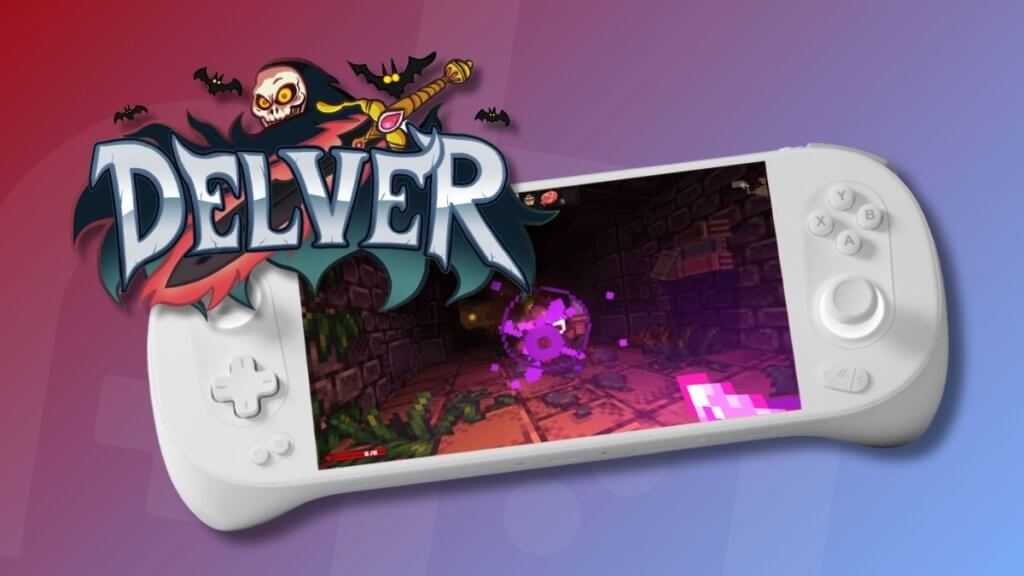We love talking about older games around these parts, whether they’re what we’re playing this week, or old memories waiting to be relived. Today, though, I’d like to cover something a bit more recent – a little game called Delver.
Delver is a game that first came out back in 2012, two years before the PlayStation 4 was released, as an Android-first, rogue-like dungeon crawler with a first-person perspective. It’s a pretty well-tread genre these days, but back when Delver was new it was still a fairly novel concept.

Though it was first made for Android, the mobile version of Delver was unfortunately delisted a while ago due to a lack of updates, as development finished in 2021. The PC version of Delver is still available on Steam, with an absolute treasure trove of Workshop support. It’s on itch.io too, and if you’re in the habit of snagging those charity bundles that pop up every so often on the platform you likely already own a copy!
Gameplay
As said before, Delver is a first-person dungeon crawler. As is usual for the genre, almost everything is randomly generated – from the items the shopkeeps round the campfire offer you before you plumb the depths, to the various bits and bobs you’ll find in said depths, to even the effects of the potions you can find. I’ve lost far too many runs forgetting that the blue potion I’m about to drink is not tasty cola or a magic shield like last run, but is in fact deadly poison.

The basic gameplay is simple but satisfying. Every weapon has a different attack speed, damage spread, and range. Wands vary from icy shotgun blasts and explosive fireballs to rapid-fire magic missiles and long-range stun guns. Absolutely everything is throwable, even your favorite ale or that legendary sword you just picked up (be careful!). You’ll be dodging spikes, teleportation traps, fighting crazed adventurers, zombies, and otherworldly beings, all of which want nothing more than to kill you and take all of your shiny things.
Not everything disappears when you die, though – any gold you pick up during a run will carry over to all future runs. Eventually, you can also buy expansions for your inventory and your hotbar, letting you hold more shiny loot and keep more tools and potions on hand for quick access.

Like all good rogue-likes, there’s a wealth of mechanics both obvious and hidden that blend together for some juicy emergent gameplay. I won’t cover everything here: discovering those mechanics is part of the fun! I would feel mean, though, if I didn’t tell you that those bombs you picked up before they exploded in your face are going to have very, very short fuses.
Audio and Visuals
To be honest, it’s difficult to keep my personal bias out of this. As somebody who sunk hours and hours into this game on the bus to and from primary school, the soundtrack to this game is burned into the back of my skull. The vibes are, as they say, immaculate.

The enemy sprites are done in a style very reminiscent of River City Rampage, which the devs have said was a direct inspiration. The art style is a nice balance of grounded and fantastical, in contrast to the dark and gritty style a lot of other dungeon crawlers have taken. The game’s artist has said that he wanted the game to look like it would have come out on the SNES if it was able to run 3D graphics – and I think they’ve nailed that look. Even the way the camera moves has been tuned to feel like an old-school FPS, with the way strafing left and right tilts the camera slightly just like Quake.
Problems

As much as I love this game, it’s not perfect. There are a few problems that I think you should know about before you jump into this game.
First and foremost, the controls. Delver plays great on a keyboard and mouse, and the old Android version had pretty good touchscreen controls, but while the game does support gamepad input, you can tell it was an afterthought. Whatever you map your ‘use’ and ‘inventory’ keys to will be your confirm and back buttons, respectively, for every single menu in the game. It’s sloppy, and it doesn’t feel great. Thankfully, Steam Input lets you customize your control scheme to a ridiculous degree, so if you’re playing the Steam version on a PC or Steam Deck you’ll be good to go after a couple of minutes. The itch.io version won’t benefit from Steam Input unless you add it as a non-Steam game into your Steam library, though.
Secondly, there just isn’t a lot of content in the base game. The devs have said that they don’t plan on adding anything more, and if you’re on Steam then there’s a plethora of mods and expansions available for free on the game’s Workshop page – but the itch.io version is yet again left in the dust with nothing but the base content easily available.
On a positive note, the developers have made Delver’s engine fully open-source, so anyone and everyone can create new content for the game and even rebuild it with all-new public domain assets if they want. I really like this move, and I think if more devs took that step with games that they’re finished with then we’d have a much healthier gaming ecosystem.
Conclusion

All in all, I think Delver is a great little rogue-like, even with its issues. It’s relatively cheap, starting at $15 USD and dipping down to below $10 during the big Steam sales – and chances are you already have the itch.io version in your library. If you do, or if you have the cash and see it on sale, I think it’s worth giving a shot.
As for me, I’ll be delving into these old ruins for a long time to come…
What did you think of this article? Let us know in the comments below, and chat with us in our Discord!
This page may contain affiliate links, by purchasing something through a link, Retro Handhelds may earn a small commission on the sale at no additional cost to you.


1 Comment
gREAT POST, I love it. I rwpect it